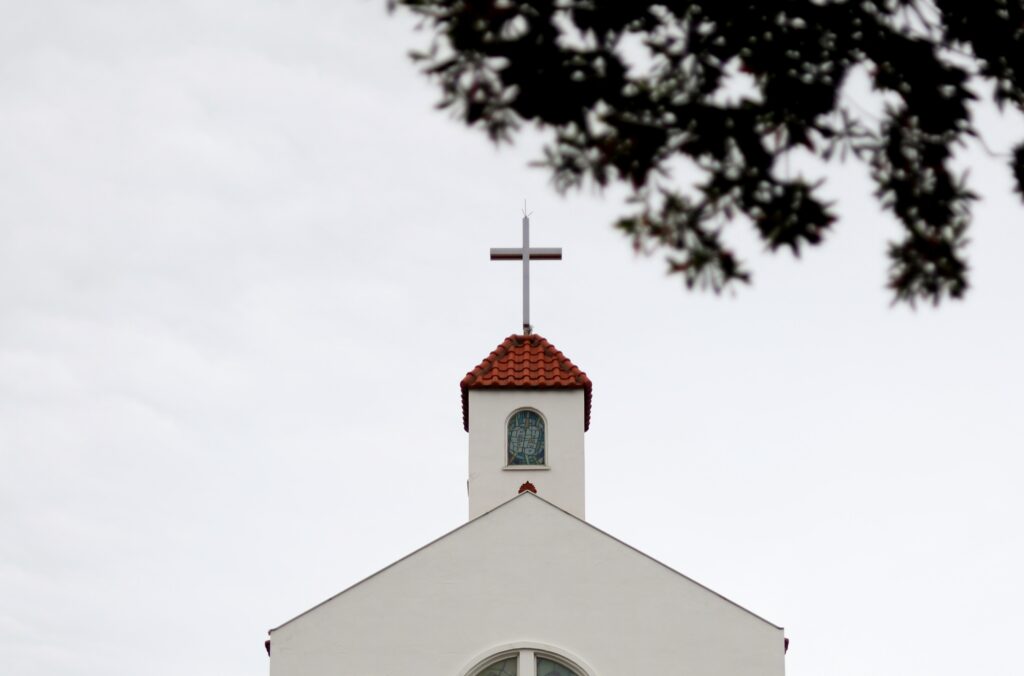Brides are epic! Over the years I have been honored to officiate a number of weddings, and I am always fascinated by the bride.
Yes, I know it’s a day for the bride and the groom to enter into the covenant—the commitment—of marriage. But let’s just face it: weddings are about the bride.
Radiant and smiling, she looks like a princess, and when she enters at the back of the sanctuary to begin her walk down the aisle, I usually hear a good number of ooohhhs, aaaahhhhs, and even a gasp or two. And I’m sure you’ve noticed that the congregation doesn’t stand when the groom walks in, but you better believe everyone stands for the bride!
During the reception, any children in attendance are usually mesmerized by the bride. When she gets up from her table to start greeting guests, the children follow her like a rock star’s entourage.
At our wedding reception, children followed my bride (they were definitely not following me!) all over the room as we thanked people for attending. Photos from our wedding—thirty-some years ago—are mostly of my wife.
Weddings are about the bride, and every bride is beautiful and worthy of our attention. Children innately understand that fact.
A breathtakingly beautiful bride is the image of the church we find in the New Testament writings of Paul and John (Revelation 19:8; 21:2; 22:17). Paul the Apostle, stated it this way in 2 Corinthians 11:2:
I am jealous for you with a godly jealousy. I promised you to one husband, to Christ, so that I might present you as a pure virgin to him.
The church is the bride of Christ, and may we view her with the same wonder and awe that children at a wedding reception view a bride.
We can love, appreciate, and value the church, declare her worth, and truly treat her as the bride of Jesus Christ that she is. The church is the family of God where children can really belong.
The Three Discoveries About Church and Children's Ministry

I came to Christ through a church, and over time I developed a number of assumptions about church based on my own experience and my reading of the New Testament. However, when we moved to Poland to help churches develop a children’s ministry, I made three discoveries about the church and children’s ministry.
Each one of the three came as a shock to me. After all, I’d served for ten years in a church-based children’s ministry. I quickly realized that I had very naïvely assumed that every Christian is a church person and that the church is fundamental to the life of every Christian.
So what did I discover?
1. Parachurch Workers Have a Low View of the Church
First, a large number of parachurch workers have a very low view of the church.
(The term parachurch simply means “outside the church” and refers to organizations like Every Generation Ministries—organizations not sponsored by a specific denomination—that serve the Lord by serving people in Jesus’ name.)
Parachurch workers can be very critical of the church, viewing the church as a flawed organization that lacks ministry passion particularly regarding the evangelism of non-Christians.
Furthermore—and no one would ever say, much less put in writing, what I’m going to boldly state—the parachurch ministry exists because they believe the church is a failure.
For instance, I’m aware of a large worldwide children’s ministry organization that for years viewed children’s pastors as “sold out to the church” and not really concerned about evangelizing children.
“They just wanted a steady paycheck” was one popular criticism. Pointing out the failures of the church can justify a parachurch ministry and even heighten its value.
2. Parachurch Organizations Believe That the Church Can Help Them Fulfill Their Mission
Second, many parachurch organizations believe that the church can help them fulfill their mission to evangelize and disciple the world.
As a platform for their ministry programs, the church can provide staff for the ministry and—most important—the needed funding. These organizations believe that the Great Commission is theirs and that churches can help them respond effectively.
3. Parachurch Organizations Redefine Church
Finally, this low view of the church combined with the realization that they need the help of churches requires a parachurch organization to basically redefine church.
In other words, if you harbor the notion that the church has failed, but you need churches to support your ministry, then you have a problem. I cannot count the number of meetings I have been part of in the United States, where missionaries speak poorly of churches overseas, while asking the US church to financially support their ministry.
If you are critical of the church and operate outside of the church, you will find it difficult to solicit the support of churches. You therefore need to redefine church.
The New Testament speaks of the church in rich and various ways. The church is the people of God and there are a limited number of passages that identify the church as the world-wide communion of Christ followers. However, the vast majority of references to the church, particularly the apostle Paul, refer to the church as primarily a community of Christ-followers.
What so often happens is an over emphasis among the parachurch leaders to the church is “all Christians alive in the world.” Therefore, any ministry work done anywhere is—by this definition—“building up the church.”
The Biblical View of the Church

You can’t avoid seeing the central place of the church in the New Testament.
Apostles wrote letters to the churches offering encouragement, providing guidance, addressing problems in belief and behavior, establishing elders and deacons to lead, and sending out and supporting missionaries (1 Corinthians 1:2; 1 Timothy 5:17; Philippians 4:15).
These letters also teach that regular meetings are essential (Hebrews 10:24-25); that church members are connected to each other in the same way that the various parts of the human body are connected (1 Corinthians 12:1-14); and that God has distributed various spiritual gifts to members of His church (Hebrews 2:1-4).
In addition, as the late and great James Montgomery Boice put it, “The church is the stage upon which God has been presenting the great drama of redemption”.
In general, holding the church in low regard, seeing the church as a means of accomplishing your organization’s mission, and, as a result, redefining the meaning of church is not healthy.
Any redefinition is especially not healthy in our ministering to boys and girls.
Actually, in my view, nowhere is the church more important than in children’s ministry. The fact that the church is the family of God is an essential element of the gospel. That concept of family is really good news for so many boys and girls.
Too often, the good news has focused solely on receiving forgiveness for sins through a saving faith in Jesus Christ. While this is certainly wonderful news, the apostle Paul had a rich view of the church and regarded its very existence as a crucial element of God’s good news.
And I agree with Paul. In my years of working with boys and girls, I’ve clearly seen how hungry children are for meaningful relationships of love and acceptance and how much they yearn to belong.
We saw this in a most unexpected way in Egypt. During the pro-democracy uprisings known as the Arab Spring (December 2010-December 2012), God gave His people amazing opportunities to share the gospel of Jesus Christ in ways that no one had ever even dreamed of.
One of those opportunities unfolded quietly in Alexandria, Egypt. Although what happened never made the international news, it was headline news—glorious news—in God’s kingdom.
The Friday Festival

An evangelical church in Alexandria had been established decades before the Arab Spring, and as is usually the case in Egypt, a mosque was built directly across the street.
Mounted on the tall spires of the mosque were loudspeakers that heralded the daily calls to pray. Those calls as well as vitriolic preaching were blared directly onto the church grounds. Years of tension and ill will built up… until a thaw came with the Arab Spring.
During that thaw, relational tension eased, and communication between the mosque and the church began. Finally, after several weeks, the imam of the mosque paid a visit to the pastor, and as they spoke, they agreed to hold a little street festival where the members of the mosque and the members of the church would share a meal and spend some time together.
The imam did mention that his people had little or no experience working with children, so the Christians could be responsible for the children’s activities.
The children’s ministry team was excited about the opportunity. Every Generation Ministries had worked with them for several years, and we helped them craft a program that was built on relationship, had a subtle Christian message, and would not lead to charges of attempting to proselytize children.
The festival went off without a hitch on Friday, the church’s normal day for services, and the Muslim children were enthusiastic from beginning to end. The Christians leading the children’s time could see that they craved the attention, the unconditional love, the joy, and the real sense of community they were experiencing.
The following Friday the evangelical church gathered as it always did, and the children’s ministry happened as it always did. At the end of the morning, though, the children’s ministry leader happened to be the last one to leave the church building.
When he opened the door to the street, he saw about 35 Muslim children gathered at the door. When they asked the leader what time this week’s festival was starting, our friend was shocked, but recovering almost immediately, he told the children to wait just one minute.
He rushed inside the church office, called his colleagues, and told them to get over to the church building. The team quickly organized some games, activities, and a Bible study. Many of those children began to regularly attend the Friday afternoon festivals. Soon their parents were attending a meeting for adults.
Many of them came to Christ and were baptized. Even today they are part of a very quiet Christian fellowship of Muslim converts that meets secretly in Alexandria.
The children’s ministry leader told me later that he never thought he would see the day when Muslim children would knock on the sanctuary door and ask for the church to minister to them.
As remarkable as that was, I wasn’t completely surprised. I had long seen that children are hungry for the unconditional love of Christ, the forgiveness of sins through His shed blood, and the sense of belonging that they find in His family, the church.
This weekend when we are leading our children’s ministry, we will be thinking about presenting our lesson and maybe presenting the message of salvation. We can remember that we are also presenting the “family” to children. A place where they can sense belonging, purpose, forgiveness, and unconditional love.
How we “present” that to children is crucial, because it is good news! Next week we will look at qualities of the church that are so essential in children’s ministry.
